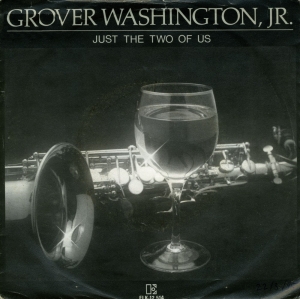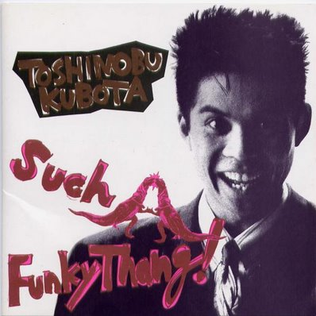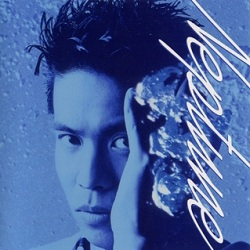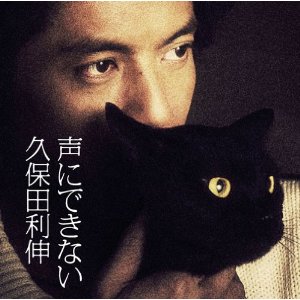
Lynn Davis is an American singer, songwriter, musician, and record producer. She rose to prominence after joining The George Duke Band in 1977. During her time with the band, she sang lead vocals on some of their biggest hits: "I Want You for Myself," "Party Down," and "Reach Out." Under the guidance of Epic Records musician and mentor George Duke, Davis continued booking success by contributing background vocals and writing songs for many singers including Tracie Spencer, La Toya Jackson, Patrice Rushen, Anita Baker, and many other singers.

"Just the Two of Us" is a 1981 R&B song written by Bill Withers, William Salter and Ralph MacDonald, and recorded by Grover Washington Jr. and Bill Withers.

La La La Love Thang is the ninth studio album of Japanese singer Toshinobu Kubota, released on December 2, 1996. The album has been certified triple platinum by the Recording Industry Association of Japan. It was also successful in international music markets and yielded two singles: "Niji No Grand Slam" and "La La La Love Song". Kubota then embarked on his first international concert tour in 1996, which he titled the Oyeees! Tour. A live album, Toshinobu Kubota Concert Tour '96: Oyeees!, was released which featured footage from the tour. As of February 2012, La La La Love Thang has sold over 840,000 copies worldwide.

Big Bang 2 is South Korean boy band Big Bang's third Japanese album. It was released on May 11, 2011.
The discography of Japanese R&B singer Toshinobu Kubota consists of eighteen studio albums, ten compilation albums, two tribute albums, and over seventy singles. In 1985, Kubota signed with Sony Japan and began producing and writing songs for many of label's singers and groups. Under the label, Kubota released his first single, "Shitsui no Downtown" in June 1986, followed by "Time Shower ni Utarete" in December. Both songs were well received by radio, placing fifty-three and thirty-five on the Oricon Singles Chart. In September 1986, his debut album, Shake It Paradise, peaked at number twenty-two and remained on the Oricon Albums Chart for seven consecutive weeks. Shake It Paradise became certified million. The following year in 1987, Kubota's second studio album, Groovin', debuted at number thirty-three and was certified million. In February 1988, Kubota released "You Were Mine", which debuted at number two. In September 1988, Kubota released his third album, Such A Funky Thang!. The album peaked at number one and was certified million. The album also spawned the top-charted single "Dance If You Want It", which peaked at number three. In 1989, Kubota released his compilation album, The Baddest. The album also peaked at number one and was certified million.

Such a Funky Thang! is the third album of Japanese singer Toshinobu Kubota, released on September 30, 1988. The album peaked at number one and was certified million. According to Sony Music Entertainment Japan's annual report, the album was Kubota's highest-selling album to date as well as the best-selling album in 1988 for CBS/Sony Group.

Bonga Wanga is the fourth studio album of Japanese singer Toshinobu Kubota, released on July 15, 1990. Under the label, Kubota released his first single, "Be Wanabee" in October 1990, followed by "Mama Udongo" in March 1991. The lead single "Be Wanabee" charted at number 16 on the Oricon Weekly Singles chart. "Bonga Wanga" became Kubota's first album to peak number one on the Oricon Albums chart. The album also became certified million. That album contains several English lyrics.

"La La La Love Song" is a song recorded by Japanese R&B singer Toshinobu Kubota for his ninth studio album, La La La Love Thang (1996). The song was written by Kubota and produced by Yoichiro Kakizaki.

Neptune is the sixth studio album by Japanese singer Toshinobu Kubota, released on July 1, 1992. The album charted at number 3 on the Oricon Monthly Albums chart and remained on the charts for total of 13 weeks. The album sold a total of 484,000 units, reaching double platinum certification.

Timeless Fly is the fifteenth studio album of Japanese singer Toshinobu Kubota, released on February 24, 2010. The album charted at number 9 on the Oricon Albums chart and remained on the charts for total of 26 weeks. The album sold over 16,063 units in Japan.

For Real? is the 14th studio album of Japanese singer Toshinobu Kubota, released on March 1, 2006. The album charted at number 13 on the Oricon Albums chart and remained on the charts for total of 9 weeks. The album sold over 33,000 units in Japan.

As One is the eleventh studio album of Japanese singer Toshinobu Kubota, released on September 27, 2000. The album charted

Soul Tree: A Musical Tribute to Toshinobu Kubota is a tribute album by various artists, released on February 25, 2004. The album was a tribute to Japanese singer-songwriter and musician Toshinobu Kubota. The album features performances by BoA, Soul'd Out, The Gospellers, Naniwa Express, Mika Nakashima, Soulhead, Atsushi, Sowele, Skoop On Somebody, Misia, Junpei Shiina with dance man, Rhymester, and Super Butter Dog Marcket. The album charted at number 9 on the Oricon Albums chart.

Love & Rain: Love Songs is a compilation album by Japanese singer Toshinobu Kubota. The album was released on November 24, 2010 on Sony Music Entertainment Japan and peaked at number 11 on the Oricon Weekly Albums chart. The album features the songs "Love Rain " and "Rain", which had just been newly recorded at the time.

The Baddest: Hit Parade is a compilation released by Japanese singer Toshinobu Kubota. This album was released in Japan at the end of November 2011 to commemorate the twenty-fifth anniversary of Kubota's music. The album charted at number 2 on the Oricon Weekly Albums chart and remained on the charts for a total of 38 weeks. The album became certified platinum, selling over 351,049+ units in Japan.

"Love Rain " is a song recorded by Japanese R&B singer Toshinobu Kubota for his compilation album, Love & Rain: Love Songs (2010). The song was released on June 6, 2010, as the lead single from the album.

"Tomorrow Waltz" is a song recorded by Japanese musician/singer Toshinobu Kubota. It was released on January 27, 2010 as the third single from Kubota's fifteenth studio album Timeless Fly.


















